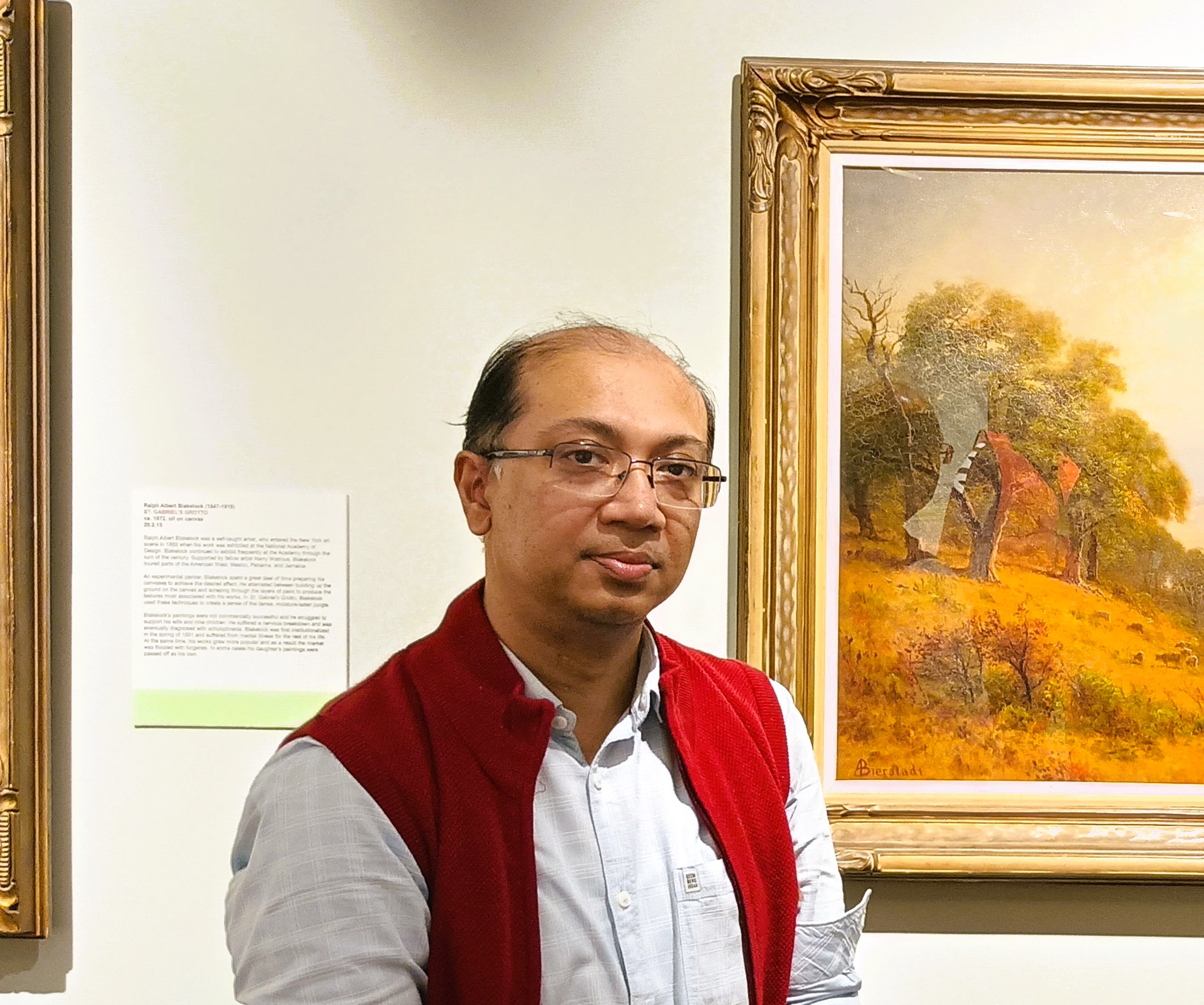|
2023-2024 Colloquium Series
The Loss of the Frontier and the Start of the Touristic West: An Analysis of Theodore
Roosevelt’s Sight-Marking Strategies
Nilak Datta, Associate Professor
Birla Institute of Technology & Science, Pilani, India
Friday, October 27th, 4PM-6PM PDT
Join the Zoom webinar [click here]
*There is no password needed to join this meeting.
However, please ensure that you are logged into your Zoom account
before clicking on the meeting link.
Abstract
In proposing the loss of the American frontier and bemoaning the concurrent loss of
American masculine hardihood, Theodore Roosevelt was banking on an established tradition that
posited not only the extensive loss of hunting land and big game as part of an upper-class,
masculine sporting privilege, but also represented the notion of the frontier as a touristic
playground for building American character and values. In nature travelogues such as Hunting
Trips of a Ranchman (1882), The Wilderness Hunter (1894), and the quasi-historical work The
Winning of the West (1889-1896), Roosevelt repeatedly emphasized the role of the West as the
antidote to “soft living” that, many mainstream Americans had been led to believe, was part of
their national way of life. Based on his personal experiences of dude-ranching in the Dakota
Badlands, Roosevelt proposed the importance, of the West as a tourist destination for
counteracting the physical, moral, and intellectual debility caused by the increasing
commercialization of everyday life by the end of the nineteenth century.
This presentation at TSWG argues that Roosevelt’s texts positioned the West as an open-
air, touristic playground for East Coast high society. Rejecting the overt tourist infrastructural
facilities increasingly available to top-dollar tourists, such as Pullman cars and elaborate tourist
lodges, Roosevelt supported a specific type of model tourism where the modern upper-class
American man voluntarily underwent hardship in pre-industrial, western wilderness settings. To
demonstrate this, the presentation analyzes various sight-marking strategies used in the above-
mentioned texts to show how the “West” was represented as a touristic playground for producing
rugged leaders for a new century.

Speaker Bio
Dr. Nilak Datta, Associate Professor (English/Cultural Studies) currently teaches at
Birla Institute of Technology & Science, Pilani, Goa Campus (India). He has taught in the United
States and in Qatar. He has earned his PhD (2011) from Carnegie Mellon University (PA, USA) and his
interests span literary and urban studies, cultural studies, American Studies, Tourism Studies,
Nineteenth-Century Studies, and American Frontier Studies. His work on tourism and the 19 th
century American West has appeared in French, and American journals like Revue Française
d’études américaines, and Western American Literature.
|



